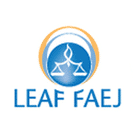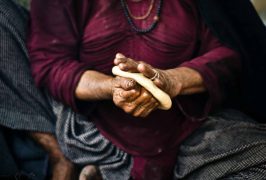R. v. Kokopenace
On Monday, October 6, the Supreme Court of Canada will consider whether the systematic exclusion of Aboriginal on-reserve residents from the jury roll, and their under-representation in the jury pool in Ontario, violates fair trial rights under ss. 11(d) and 11(f) of the Charter, and s. 15 rights of an accused and the rights of Aboriginal on-reserve residents as potential jurors. The Crown has appealed the Ontario Court of Appeal’s decision that because of systemic underrepresentation of on-reserve Aboriginals on the jury roll, the accused did not have the benefit of an independent and impartial jury.
The court granted leave to LEAF to intervene along with our partner, the David Asper Centre for Constitutional Rights at the University of Toronto. We are concerned that overlooking the dimensions of equality and anti-discrimination in other Charter rights could have the effect of limiting the courts’ appreciation of how women may be differentially affected by breaches of other Charter rights. We argue that fundamental criminal law principles must always be interpreted and applied in a manner consistent with substantive equality; that is, without exacerbating or perpetuating systemic disadvantage. We further assert that s. 15 of the Charter must continue to play a constitutive role in the Court’s analysis of criminal law issues. Criminal justice practices and procedures can violate individual and group equality rights, as occurred in this case, if attention is not paid to this analysis.
LEAF and the Asper Centre urge the SCC to find that the exclusion of Aboriginal people resident on-reserve from the jury rolls constitutes a violation of s. 15 for both the Respondent and for potential jurors. Further, the Crown’s discriminatory failure to take reasonable steps to include on-reserve residents in the jury roll perpetuates the historic disadvantage of Aboriginal accused persons and prospective on-reserve jurors. The larger context of systemic, persistent, pervasive discrimination against these populations cannot be ignored, and the Crown’s failure here must not be excused.
LEAF and the Asper Centre are the only interveners to focus on equality rights in this hearing. Our participation is vital and we thank you for your support of our work.
Cheryl Milne, Executive Director of the Asper Centre will make our oral argument at the Court, appearing with co-counsel Kim Stanton, Legal Director of LEAF. Our factum is available here.

